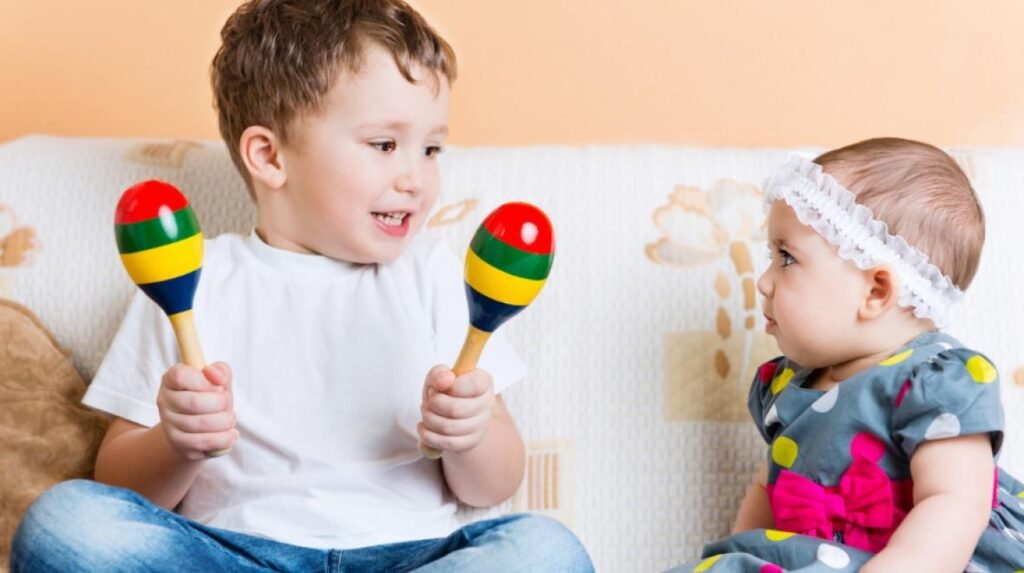
Using Music for Kids’ Development
This page contains affiliate links for which we may be compensated
Last updated: July, 2024
Music has long been recognized as a potent tool in nurturing children’s development. From soothing lullabies to lively tunes, the impact of music on young minds is profound. In this article, we delve into the significance of music for kids’ development and explore the multifaceted benefits it offers.
The Cognitive Benefits of Music:
- Enhanced Brain Development: Engaging with music stimulates various areas of the brain, fostering neural connections and promoting cognitive development.
- Improved Language Skills: Exposure to music assists in language acquisition, as children learn to distinguish between sounds and patterns, aiding in phonological awareness.
- Enhanced Memory: Learning songs and melodies aids in memory retention, sharpening cognitive functions crucial for academic success.
Emotional and Social Development:
- Expression of Emotions: Music serves as a medium for children to express and regulate their emotions, fostering emotional intelligence and resilience.
- Promotion of Social Bonds: Participating in musical activities such as group singing or playing in ensembles fosters teamwork, cooperation, and empathy among peers.

Physical Development:
- Fine Motor Skills: Playing musical instruments or engaging in rhythmic activities develops fine motor skills, enhancing coordination and dexterity.
- Gross Motor Skills: Dancing to music or engaging in rhythmic movements promotes gross motor skills, aiding in balance and spatial awareness.
Creativity and Imagination:
- Stimulates Creativity: Music ignites the imagination, encouraging children to explore their creativity through songwriting, improvisation, and imaginative play.
- Fosters Problem-Solving Skills: Encountering musical challenges encourages children to think critically and creatively, honing their problem-solving abilities.
Tips for Incorporating Music into Children’s Lives:
- Create a Musical Environment: Fill your home with a variety of music genres, exposing children to diverse sounds and cultures.
- Encourage Active Participation: Encourage children to sing, dance, and play musical instruments, fostering their love for music and active engagement.
- Incorporate Music into Daily Routines: Integrate music into daily activities such as mealtimes, bath time, or bedtime routines, making it a natural part of their lives.
- Explore Music Education Programs: Enroll children in music classes or programs tailored to their age and interests, providing structured learning opportunities.
Conclusion:
Music plays a pivotal role in children’s holistic development, nurturing their cognitive, emotional, social, and physical well-being. By embracing music as an integral part of their upbringing, parents can unlock the full potential of their children, fostering a lifelong appreciation for the enriching power of melodies. Embrace the harmony of music in your child’s life, and witness the symphony of their development unfold.